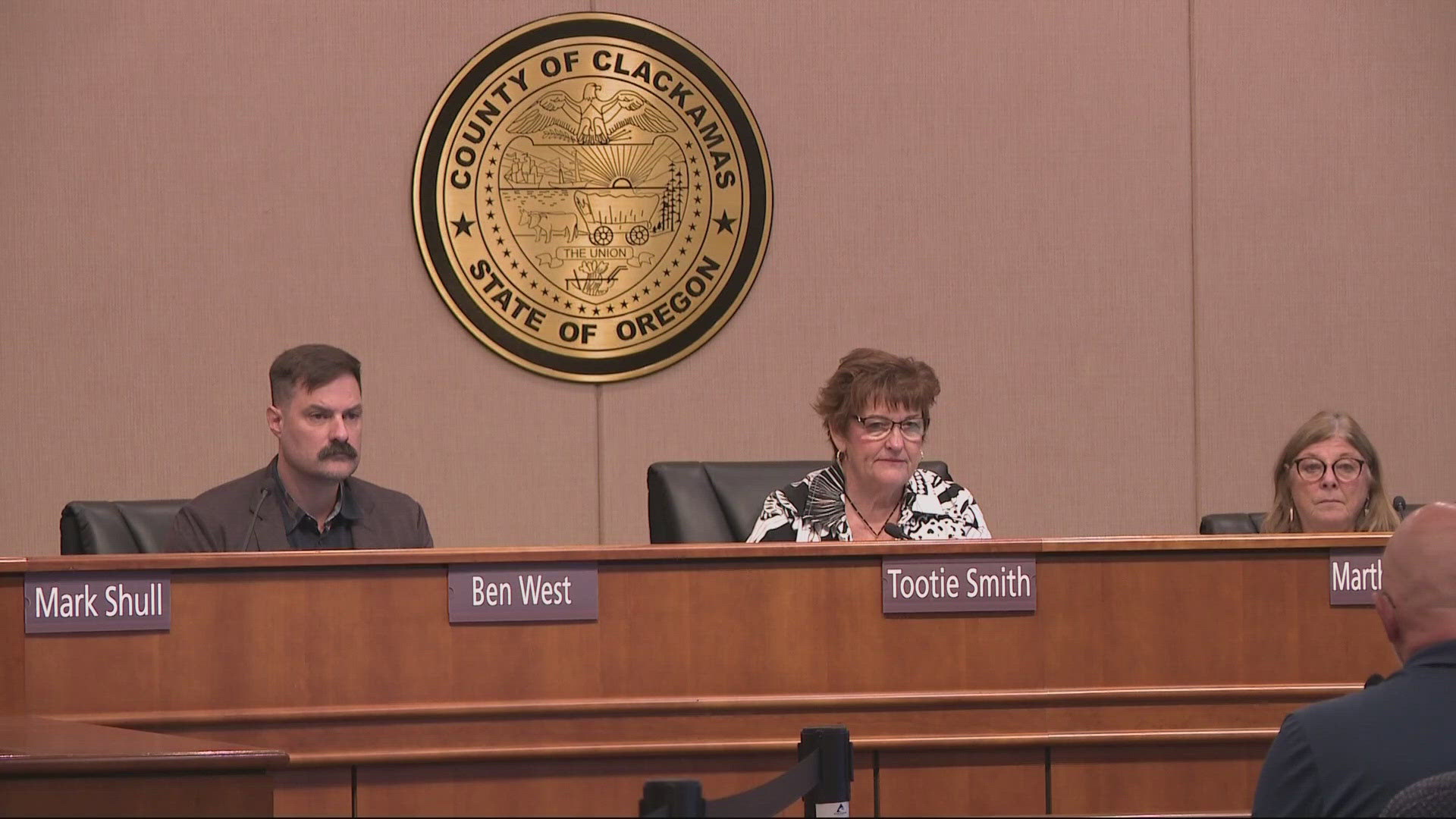OREGON, USA — Counties across Oregon are up against a deadline to launch programs offering treatment instead of jail for people caught with possession of hard drugs, which becomes a crime again in Oregon on Sept. 1.
It’s meant to be a second chance for drug users, called "deflection," and it’s something Clackamas County said it has done prior to Measure 110, the 2020 voter-approved ballot measure that decriminalized hard drugs.
“It was wildly successful. That's essentially the program that we sent to the state,” said Clackamas County District Attorney John Wentworth of their existing program.
The Oregon Criminal Justice Commission must approve each county's deflection plan before they give them the money to run it. Last week, the state rejected Clackamas County's. Their plan centered around sending people to community court, where they would be connected to recovery services.
“I was shocked. I was shocked that we were denied, because our program had been successful in the past,” Wentworth said.
“They gave a number of reasons. One of them was that my office was receiving more money, perhaps, than we should ... but Clackamas County is unique in that our expert in this field of building deflection happens to work in my office," said Wentworth. "I believe if he worked in any other department in the county, we wouldn’t be having this conversation."
Washington County created a deflection program that sends outreach workers to the streets. Certain people without violent criminal histories can choose treatment over jail once per year. The state will review it on Wednesday morning.
“We've built the best program we could — we feel good about the program," said Joe Simich, Washington County’s deflection team coordinator. "It meets the criteria of the bill, it meets the criteria for deflection, so we feel confident that it will be approved."
“Nobody knew that it would be subject to personal opinions, and it looks like personal opinions and politics have permeated its way through this process, and here at Clackamas County we're going to fight it and we're not going to put up with it,” said Smith.
Multnomah County’s deflection plan — one that has somewhat more lenient rules and has faced major community backlash — was approved by the state last week.
In a statement to KGW on Tuesday, the Oregon Criminal Justice Commission said it would take a second look at the Clackamas County deflection plan.
"The IMPACTS Grant Review Committee voted today to conduct a second review of the deflection grant application for Clackamas County," Ryan Keck, deputy director for the OCJC, said in an email. "A meeting to do so will be scheduled and publicly noticed as soon as feasible."
Keck said the commission doesn't comment until final decisions have been made, however recordings of the committee's meetings are available on the OCJC YouTube channel, usually posted within 48 hours.
In a statement sent to KGW on Thursday, Wentworth indicated that Clackamas County had made one change to its proposal in order to placate the committee, dropping the funding for a deputy district attorney "provided we will receive the funding for other purposes."
"However, the county has no intention of changing any other aspect of its deflection plan," Wentworth continued. "We’ve really thought this through, and know this plan will be successful. The other challenges the committee has are more political than actual, and our proposal meets the grade. We are statutorily sound in our process.”
Under House Bill 4002, the law that recriminalized simple drug possession, the concept of a drug deflection program was introduced but not strictly defined. While state officials are expected to establish best practices for deflection programs, that won't happen for many months.
However, the text of the bill does suggest that deflection programs could be at odds with traditional drug or community court programs, which are more closely associated with the criminal justice system. The bill states that law enforcement should refer someone picked up on a minor drug possession charge to a behavioral health program, one offering "community-based pathways to treatment, recovery support services, housing, case management or other services."
There is nothing in the bill or its budget companion to suggest that community courts or drug courts must be funded through deflection program grants.
During the Aug. 2 meeting where the IMPACTS committee rejected Clackamas County's proposal, multiple members expressed concerns along these lines — some saying that the county's plan had all the hallmarks of a diversion program, which is the term used to describe things like drug courts and not synonymous with the idea of deflection.
Several members speculated that a program like this might constitutionally require that people picked up for drug possession receive legal representation, which would defeat the purpose of "deflecting" someone away from the court system.
“I appreciate the committee’s decision to reconvene and reconsider its denial of our non-competitive grant application for a voluntary program," Wentworth said. "Unfortunately, this process will likely delay the implementation of an effective deflection program that Clackamas County residents need and deserve.”

